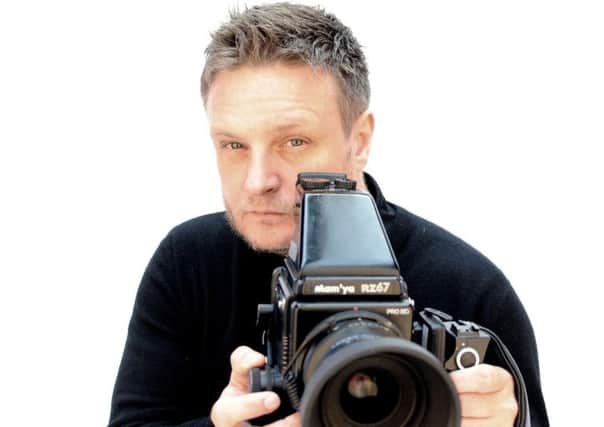Narcissistic selfie craze ruining photography says leading Scot


Now, the Scot regarded as one of the world’s most sought after photographers has warned the accessibility of smartphones and mobile cameras is being undermined by the rise of so-called selfies.
Rankin, the Paisley-born portrait and fashion photographer, said the craze among people for taking photographs of themselves is indicative of narcissistic behaviour.
Advertisement
Hide AdAdvertisement
Hide AdThe 51-year-old said that while he welcomed the way increasingly affordable technology was allowing people to dabble with photography, he worried about what the fruits of their labour said about society.
Rankin, whose subjects over the years have included the Queen and Kate Moss, said: “More people are using, talking about and appreciating photography than ever before. If you told me 20 years ago that everyone would be walking around with a high-res camera in their pocket, I’d have laughed.”
But he added: “The other part of me worries about it. The selfie has been part of this huge wave of narcissism, which we’re all guilty of. The ‘we’ has become the ‘I’.”
Instead, the photographer has urged people to train their cameras on the world around them and capture moments in daily life as part of a drive to raise funds for BBC Children in Need.
The “most engaging” images submitted by members of the public will feature alongside work by leading photographers and photojournalists in a new book, This Is Britain, which Rankin hopes will provide “a snapshot of British society as it is today.”
He explained: “Holding a mirror up to ourselves at a pivotal moment in our history, This Is Britain will provide an honest yet inspirational visual answer to the burning question, ‘Who are we?’.
“It will be a celebration of the extraordinary spectrum of colours and characters that make up our multicultural society, as well as the central commonality of identity and humanity that binds us together as a country.”
Advertisement
Hide AdAdvertisement
Hide AdHe added: “I’d love the images to be positive. I’d love them to be a cross-section of our society and people and cultures and beliefs. I’d love them to put a smile on my face. We live in funny, testing times so I’m basically asking them to reaffirm my faith in humanity.”
It is not the first time Rankin has addressed the divisive issue of the selfie in his work and interviews. In 2014, he took time out from shooting portraits to interpret Rembrandt’s famous series of self-portraits. While the Dutch master used paint and canvas to capture his likeness, Rankin turned to the tools of his own trade, wielding a camera to take images of himself as part of a BBC programme.
At the time, he admitted he was “not adverse to the odd cheeky selfie,” stating: “I can’t really sit here and slag people off for it, you only need to check out my Instagram feed to see that.
“People use their camera phones because it’s convenient and allows for spontaneous moments to be captured. We all do it.”
As part of the new Children In Need contest, people are invited to snap images from 20 October to 22 October, which can then be entered across a range of 14 categories, including ‘Breakfast’, ‘Rush Hour’, and ‘Time for Tea’.
The most striking 500 images will be included in the This Is Britain coffee table book, which will be published by Photobox on 17 November. All profits will be donated to Children in Need.